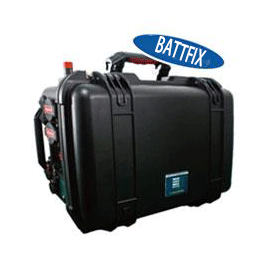
html
Auto Battery Charger: Essential Guide for Optimal Performance
An auto battery charger is a crucial tool for maintaining the health and longevity of your vehicle’s battery. Whether you’re dealing with a dead battery or simply want to ensure optimal performance, understanding how to use and choose the right charger is essential. This guide will walk you through everything you need to know.
Why You Need an Auto Battery Charger
Car batteries can lose charge over time, especially in extreme weather conditions or when the vehicle is not used frequently. An auto battery charger helps:
- Revive a dead or weak battery
- Maintain charge during long periods of inactivity
- Extend the overall lifespan of your battery
- Prevent unexpected breakdowns
Types of Auto Battery Chargers
There are several types of chargers available, each suited for different needs:
1. Trickle Chargers
These provide a slow, steady charge and are ideal for long-term maintenance. They’re perfect for vehicles that aren’t driven regularly.
2. Smart Chargers
Also known as microprocessor-controlled chargers, these automatically adjust the charging rate based on the battery’s condition. They’re the safest option for modern vehicles.
3. Jump Starters
These portable units can quickly provide enough power to start a dead battery but aren’t designed for long-term charging.
How to Choose the Right Charger
Consider these factors when selecting an auto battery charger:
- Battery type: Match the charger to your battery (lead-acid, AGM, gel, etc.)
- Voltage: Most cars use 12V batteries
- Amperage: Higher amps charge faster but may not be suitable for all batteries
- Safety features: Look for overcharge protection and spark-proof technology
- Portability: Consider size and weight if you need to transport it frequently
Proper Charging Procedure
Follow these steps for safe and effective charging:
- Read both your vehicle’s manual and the charger instructions
- Ensure the vehicle is off and in a well-ventilated area
- Connect the charger to the battery terminals (positive first, then negative)
- Set the appropriate charging mode and start the charger
- Monitor the charging process and disconnect when complete
Maintenance Tips for Battery Longevity
To get the most from your battery and charger:
- Clean battery terminals regularly to prevent corrosion
- Check electrolyte levels in non-sealed batteries
- Store batteries in a cool, dry place when not in use
- Use a maintenance charger during long storage periods
- Test your battery’s health periodically
Common Mistakes to Avoid
Be aware of these frequent errors when using an auto battery charger:
- Overcharging the battery
- Using the wrong charger type for your battery
<li
Keyword: auto battery charger